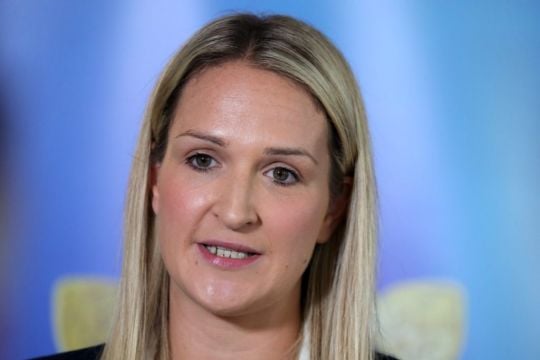Dublin’s four coroners have warned the Department of Justice of their “grave concern” about a growing backlog of inquests due to an ongoing issue with staff shortages.
The four coroners – Myra Cullinane, Cróna Gallager, Clare Keane and Aisling Gannon – claimed problems with filling vacancies and retaining staff have placed “an unmanageable workload” on the Dublin Coroner’s Office.
Correspondence released under freedom of information legislation reveals they jointly informed the Department of Justice this summer that the backlog of cases meant inquests dating back to 2019 remain to be heard.
Documents also highlight how the Dublin Coroner’s Office admitted it had not been able to quantify the extent of the backlog.
The coroners noted that resulting delays in communication with bereaved families, legal representatives and other stakeholders had “the potential to bring the office and the Minister into disrepute.”
Backlogs
They claimed the issue had resulted in the families of people due to have inquests held into their deaths as well as solicitors, doctors, TDs and other public representatives having legitimate complaints, while also observing it was leading to “increasingly negative media comment.”
In a letter to the Department of Justice on June 7th 2023, the coroners stated it was their collective view that “currently the office is not fulfilling its administrative function to the standard expected of a public office.”
They claimed that the appointment of two additional coroners in recent years to bring their total to four and the provision of two new courtrooms at the Richmond Education and Event Centre on North Brunswick Street were being “significantly underutilised” due to staff shortages.
Documents also reveal that the Department of Justice was unsuccessful in providing new registrars and other key staff, despite efforts to fill vacant positions.
In one case, there were no applicants for a particular role, while another recruit withdrew a week before they were due to start work in the coroner’s office.
One civil servant acknowledged that there had been a high turnover of staff since the latter part of 2022.
The coroners claimed it appeared from such recruitment problems that no appreciable improvement in the number of inquests being heard could be expected in the medium term.
“This is a matter of grave concern,” they observed.
Documents also reveal that Dr Gallagher raised a concern that a business analyst review of the Dublin Coroner’s Office did not appear to include quantifying and tackling the backlog of inquests.
Improvements
The four coroners said they were strongly of the view that measurable improvements must be seen from the review.
However, they expressed concern that the time it would take to implement any recommendations arising from the review would “lead a further deterioration in our service and backlog,” while it would also not address the issue of staffing shortages.
Dr Gallagher advised the Department that she had personally established that the private sector had the potential to provide more immediate solutions to staff shortages.
She said the majority of large accountancy and legal firms had dedicated resources aimed at assisting organisations with temporary crisis situations such as tackling systemic backlogs and had staff who could be deployed rapidly to fill vacancies for court registrars.
Dr Gallagher said “one specific Big 4 accounting firm” had confirmed it could provide individuals capable of filing roles as registrar and clerical officer “within a week or two.”
The coroner said such firms could also help quantify the scale of the backlog of inquests in Dublin.
She claimed there was a precedent for the use of agency staff within the public service.
The Department of Justice, which launched a public consultation about reform of the coroner service last week, did not respond to a specific request for comment on its response to Dr Gallagher’s proposal.
A spokesperson said it had “invested significantly in increasing staffing of the Dublin Coroner’s Office, both filing existing vacancies and creating new posts.”
The spokesperson said it was intended that the ongoing review would lead to “implementing a modernisation programme that will ensure the service is as efficient and effective as possible.”
Well-being
Documents show it has also invested in the well-being of the staff at the Dublin Coroner’s Office “in an attempt to address retention levels” including the offer of places on “trauma informed practice” training.
Other correspondence shows coroners in Laois, Limerick and Cork have experienced difficulty in finding pathologists to carry out postmortem examinations.
Separately, Cork City Coroner, Philip Comyn expressed how he was “extremely disappointed” in a letter to Cork City Council on October 6th, 2022 about the lack of “positive engagement” by the local authority to a letter he sent six months earlier seeking additional resources.
Mr Comyn warned that the council’s failure to staff his office was “severely hampering” his ability to carry out his statutory functions.
He added: “More importantly it is directly impacting the people of Cork City who are facing unnecessary delays in very trying circumstances due to the continuing failure of Cork City Council to properly staff my office.”
Although the coroner said he had tried over a long period of time to work constructively with the council, he claimed he had been “studiously and deliberately ignored.”
Mr Comyn said he could not let the situation continue and indicated he was writing to the then Lord Mayor, Councillor Deirdre Forde, to seek an opportunity to address the full council about the issue before its budgets for 2023 were adopted.
Five days later, Mr Comyn said he had delayed longer than he should have in addressing staffing issues “in the forlorn hope” that the council would help him to resolve the problem.
The coroner said he would proceed with interviews for staff necessary to fulfil his statutory functions and warned he would initiate proceedings against the council if it did not wish to assist him.
In June this year, the council confirmed that it was providing two new staff to the Cork City Coroner’s Office.







